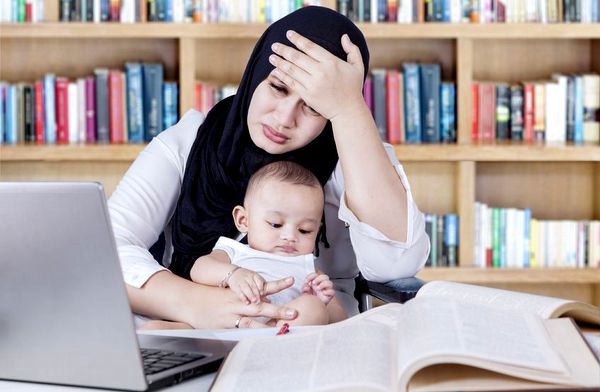Many teenagers underestimate the impact that random events can have on their lives because they believe that warnings apply only to other people. They rationalize behaviors by saying “I know the risk but it won’t happen to me.”
Doo-doo happens.
Despite our best efforts, however, unfortunate things happen. For example, crime is where it finds you, and living in an urban area increases the odds that you will be involved in a violent crime. Besides thinking about retirement, consider the possibility that you may unexpectedly lose a job, become disabled, or declare bankruptcy. For young nubile NeXters, the biggest dream killer is having a child too early in life.
The hurt locker for teen moms.
According to the Center for Disease Control’s Youth Risk Behavior Surveillance (2013), 41 percent of high school students who are currently sexually active didn’t use a “gent tent” the last time they had sex. In the heat of the moment, they often fail to use them (self‑control trap*). In addition, many pregnant teens cease to use condoms because they are no longer needed to prevent pregnancy. This is worrisome because contracting an STD during pregnancy can have negative health consequences for both the youthful mother and her baby.
That risk is palpable. Among young persons, a single unprotected sexual encounter with an infected partner runs a 1 percent risk of HIV, a 30 percent risk of genital herpes, and a 50 percent risk of gonorrhea (Human Development, 2005). The numbers are stunning: nearly half of the 20 million new sexually transmitted diseases (STDs) each year occur between the ages of 15 to 24 according to Catherine Satterwhite (2008) and colleagues. Many parents haven’t a clue.
Health issues aside, many teen girls underestimate the huge impact a pregnancy can have on their personal economic success (optimism trap *). An unintended pregnancy and the decision to keep her child often have serious effects on a young mother’s education and on her financial resources. Researchers find about 7 out of 10 teen mothers drop out of high school and many do not return. Only 2 percent will graduate from college. Lacking maturity and a means of self-support, they become dependent upon social service agencies. Sadly, this was not where they wanted to be.
Teenage wasteland.
Why the fuss? After all, TV actress Jamie Lynn Spears, Britney’s unmarried kid sister, gave birth to a son at 17. The hit movie Juno featured a spunky heroine who remains at high school while pregnant and recruits a married couple to adopt the baby. And the 17-year-old daughter of Republican vice presidential nominee Sarah Palin got pregnant then married her boyfriend. Hell, if they can pull it off . . . why not you?
Here’s why. How many teenager moms do you know that come from supportive and financially stable families? Which ones have an array of future opportunities that a more typical teen mom might not have? What are the odds they will be performing on Dancing with the Stars? For most of you in this situation, your childhood dreams are put on hold the day your child is born. As your friends look forward to graduation day, you’ll be watching them move on.
OBTW, no guy wants to take out a 16-year-old girl who has a baby.
Life is like a box of chocolates. You never know what you’re gonna get.
~ Forest Gump
* Questionable beliefs can “trap” our better judgment, leading to poor decisions and unintended consequences. In the self-control trap, we often fail to follow through on our intentions. In the optimism trap, we tend to underestimate the long-term impact of random chance and uncontrollable events on our lives. Learn more about this, and other traps, in the Young Person’s Guide to Wisdom, Power, and Life Success.
Image credit: Portrait of frustrated mother working in library by ximagination, licensed from 123rf.com (2015).





















